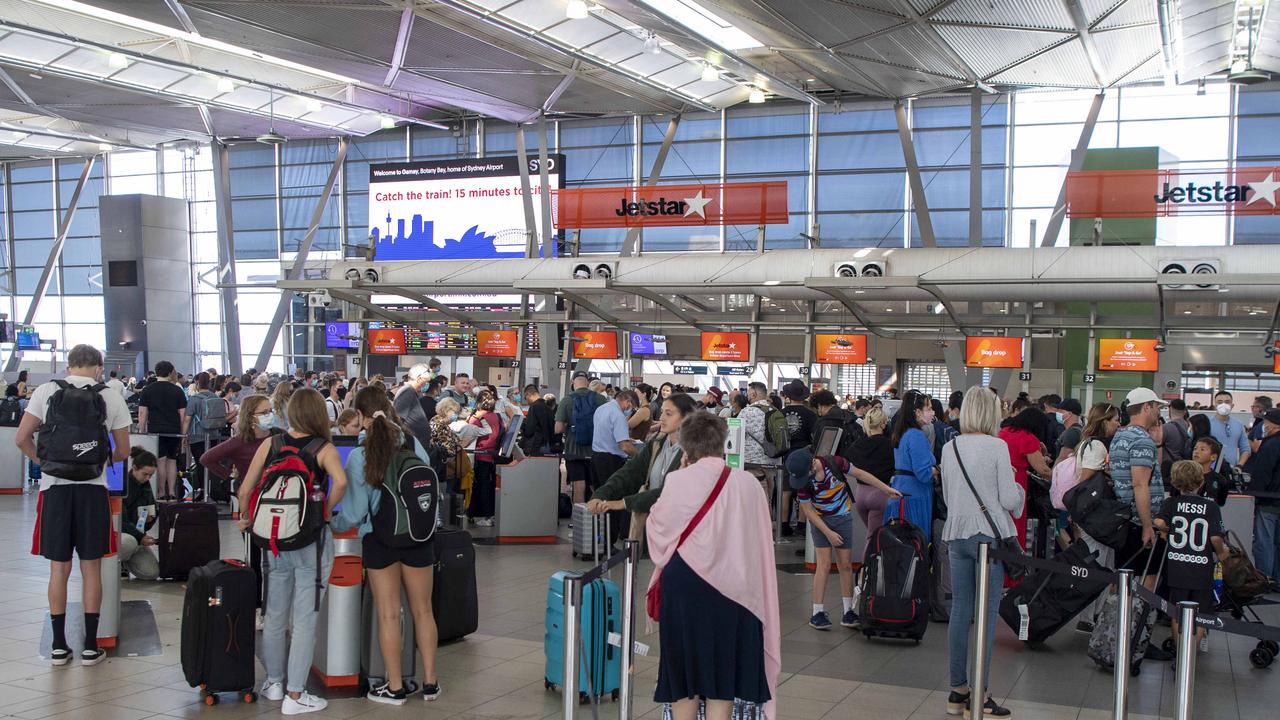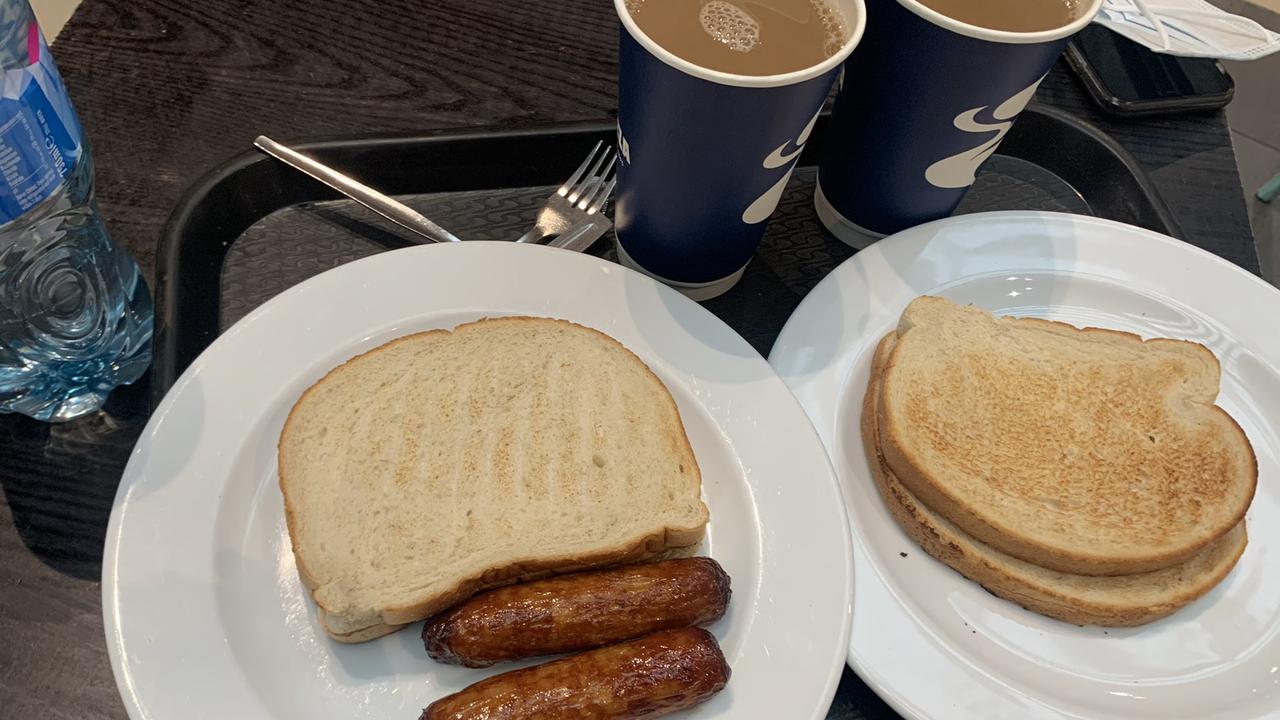Omicron Covid variant prompts Australia to change travel rules
Australian states and territories have introduced new travel rules in a bid to slow down the Omicron coronavirus variant. Here’s what you need to know.
Travel News
Don't miss out on the headlines from Travel News. Followed categories will be added to My News.
Australian state and territory leaders have introduced changes to their travel restrictions and flagged more to come after the Omicron coronavirus variant emerged in the country.
Australia’s chief medical officer Paul Kelly on Monday said while Omicron was rightly being treated with concern, the latest research suggested its symptoms were no more severe than previous versions of the disease.
But the federal government has changed some of its international travel rules in response to the new strain, as have state and territory leaders.
Mr Hunt on Saturday announced a travel ban for nine African countries that doesn’t apply to Australian citizens, permanent residents or their immediate family members.
Anyone else who has been in South Africa, Namibia, Zimbabwe, Botswana, Lesotho, Eswatini, Seychelles, Malawi or Mozambique in the past 14 days will not be able to enter Australia.
Australian citizens, permanent residents and immediate family members, including parents, arriving from these countries will need to go into immediate hotel quarantine for 14 days.
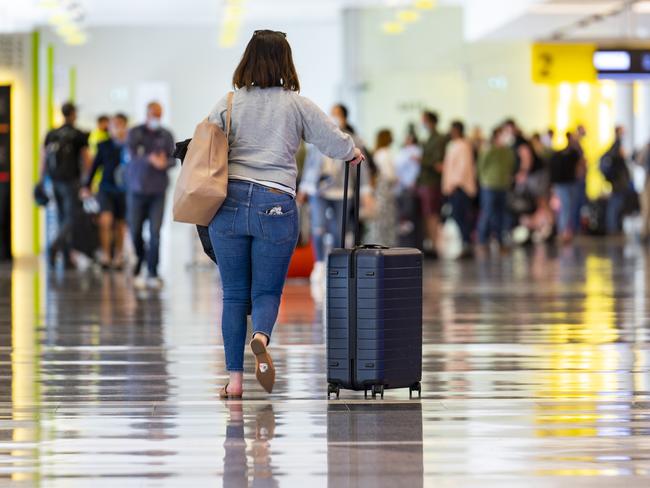
The NSW and Victorian governments have announced vaccinated travellers from all other countries are required to isolate at home for 72 hours on arrival into either state.
The Omicron variant has emerged less than a month since NSW and Victoria scrapped hotel quarantine for travellers.
NSW Premier Dominic Perrottet on Monday ruled out an overall return to hotel quarantine and said Australia shouldn’t have a “knee-jerk” reaction to the new variant.
“We don’t just need to learn to live alongside Covid, we need to learn to live alongside the variants as well,” he told reporters.
“And we’re very confident, based on our high vaccination rate.”
The Age newspaper on Sunday reported that Victorian health officials were considering extending the 72-hour isolation requirement to return to 14 days of quarantine, though this was yet to be confirmed.
Victorian chief health officer Brett Sutton said on Sunday that Omicron wouldn’t put Australia “back to square one” because of high vaccination rates.
He said the Victorian government’s new quarantine measures would be reviewed in three days and could be extended if necessary
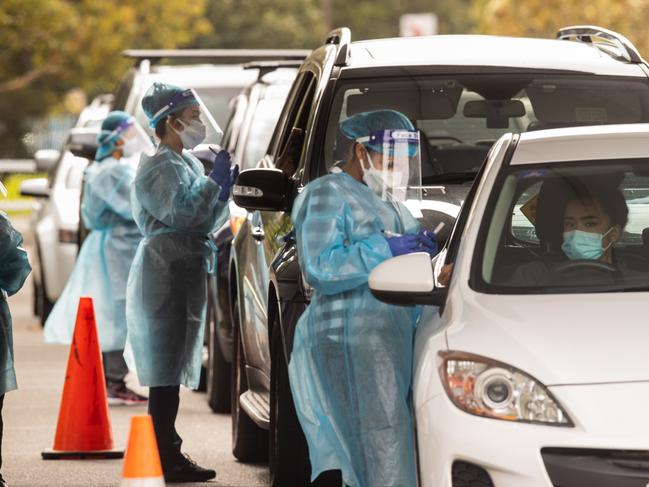
The ACT government has also tightened its quarantine restrictions, with all recent international arrivals required to isolate until 11.59pm on Tuesday.
Anyone in the ACT who has been in one of the nine southern African countries in the past 14 days must get a PCR swab test and quarantine immediately.
In Queensland, all international arrivals are already going into hotel quarantine, while domestic arrivals from states with open international borders are required to quarantine at home.
These restrictions are set to ease on December 17 when 80 per cent of Queenslanders aged over 16 are expected to be double-dose vaccinated against Covid-19.
Queensland Deputy Premier Stephen Miles on Monday said the government would hold off on any changes to its reopening plan.
“Nothing has changed at this stage, but people should be assured that we’ll continue to take a cautious, well-prepared approach,” he told reporters.
“As they always do, our health officials are monitoring developments around the country and around the world and are continuing to provide advice about what is happening.”
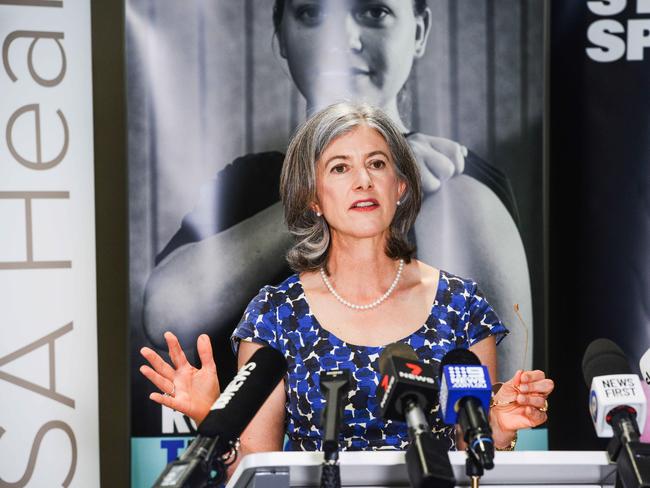
South Australian authorities have doubled hotel quarantine requirements for international arrivals from seven days to 14 for anyone who has arrived since November 23.
Chief public health officer Nicola Spurrier said health officials were closely monitoring the situation.
“There is evidence Omicron is highly contagious and out of increasing concern, and in line with advice from the commonwealth, we have put measures in place while we assess the level of risk,” she said.
“Our number one priority is to keep South Australians safe and I thank each and every one of you for your part in helping us do that.”
Home quarantine remains an option in SA for returned travellers who can quarantine safely in their home.
Anyone travelling into SA from low-risk or moderate-risk suburbs, such as those in Sydney or Melbourne, must show proof of a negative Covid-19.
They will no longer be able to be tested on arrival.
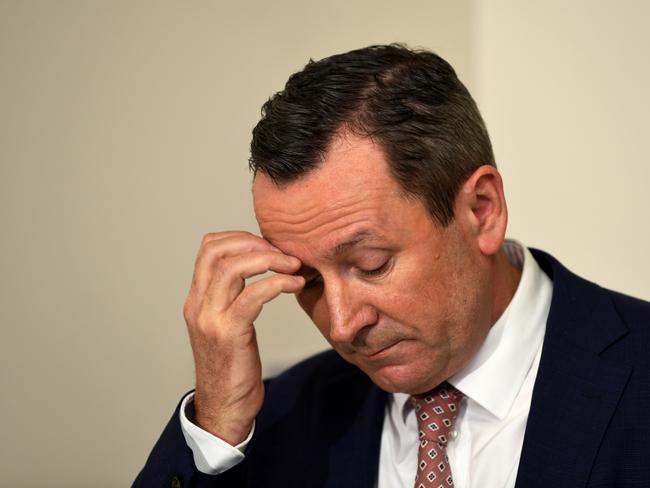
Western Australia still requires overseas travellers to complete 14 days of hotel quarantine upon their arrival into the state.
The WA government this week ramped up its border restrictions with South Australia after the latter state opened its borders to interstate travellers from places with Covid outbreaks.
WA Premier Mark McGowan said the decision was linked to concerns about Omicron.
“There is a great deal of uncertainty about the recently emerged Omicron variant, so it is important WA has strong protections in place for states which have relaxed their international borders,” Mr McGowan said.
The Northern Territory and Tasmanian governments are yet to announce any changes to their travel rules, but overseas arrivals in both jurisdictions are still required to complete 14 days of quarantine.
State and territory leaders will meet with Prime Minister Scott Morrison in an emergency national cabinet session within the next 48 hours following the detection of at least two Omicron cases in Australia.
The World Health Organisation has declared the B. 1.1.529 strain of the virus, now dubbed Omicron, to be a variant of concern.
There is still little known about the new strain, which has been circulating in nine southern African nations and is believed to be much more transmissible than previous variants.
Mr Hunt said it was particularly concerning that the Omicron variant had a high number of mutations within its spike protein.
Originally published as Omicron Covid variant prompts Australia to change travel rules

